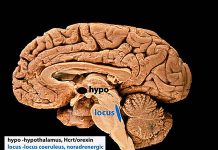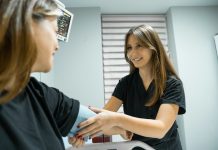
Alzheimer’s disease is a scary diagnosis that often comes too late for effective treatment. But what if we could catch it years before memory loss and other symptoms show up?
Researchers from the University of Colorado and Washington University in St. Louis have found a new way to do just that.
They’ve developed a method to analyze brain activity during sleep to spot early signs of Alzheimer’s disease.
How Does the Sleep Headband Work?
The researchers use a straightforward headband device equipped with electroencephalography (EEG) sensors to measure brain wave patterns during sleep.
When we sleep, our brain goes through a deep cleaning process and sorts out memories.
In this study, the EEG readings were linked to early signs of Alzheimer’s, specifically changes in certain proteins that are known to be involved in the disease.
Brice McConnell, the leading researcher, said this method could turn any simple EEG headband into a “fitness tracker for brain health.”
It’s a big deal because it could let people know they’re at risk for Alzheimer’s long before they start to show symptoms. Then they could take steps to slow down the disease’s progression.
What the Study Found
The study is the largest of its kind so far, involving 205 older adults. Researchers found that certain brain wave patterns during sleep were linked to abnormal levels of Alzheimer’s-related proteins.
McConnell said that identifying these early signs in people who don’t yet have symptoms could open the door to preventive treatments.
What’s Next?
While the results are promising, the team knows there’s more work to do. They’re now focused on perfecting the process to make it as accurate as possible.
In the future, affordable and easy-to-use headbands could become a regular part of our healthcare toolkit, letting us keep tabs on our brain health as easily as we track our steps or heart rate.
In summary, this sleep-monitoring headband could offer a simple and accessible way to detect Alzheimer’s at a very early stage, giving people a head start on taking preventive measures.
It’s a new and hopeful chapter in the fight against a devastating disease.
The study was published in Alzheimer’s & Dementia.
Copyright © 2023 Knowridge Science Report. All rights reserved.



